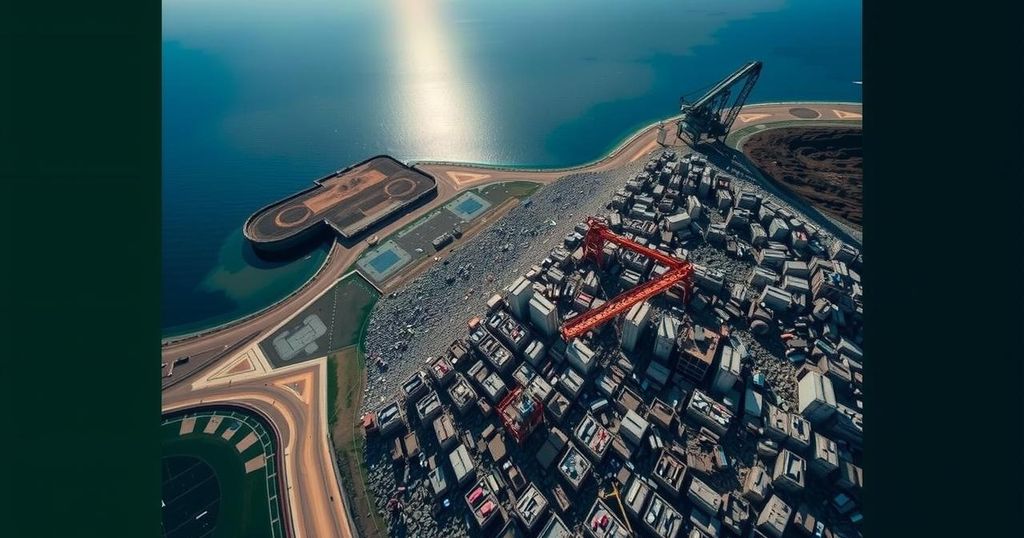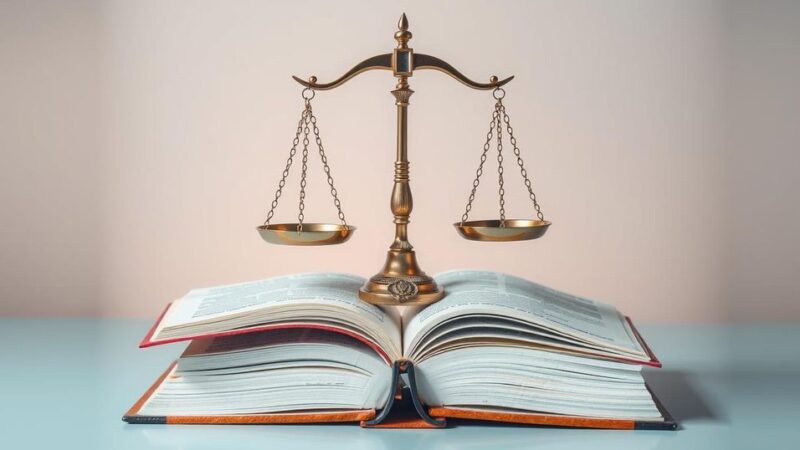Ghana faces severe economic challenges due to a rise in illegal mining, known as galamsey, which has diminished cocoa production, polluted water supplies, and increased food inflation. This issue will be pivotal for the incoming presidential administration, as both main candidates pledge to combat illegal gold mining. The galamsey boom, while providing local employment, primarily benefits smuggling operations, raising concerns over the long-term impact on both the economy and public health.
Ghana is grappling with a significant surge in illegal mining, commonly referred to as “galamsey,” which poses a serious threat to the nation’s economy. This illicit activity has adversely affected cocoa production, contaminated water supplies, and triggered increased food inflation. As the December 7 presidential election approaches, this issue emerges as a critical challenge for the forthcoming leadership, which must navigate the economic fallout that accompanies illegal mining operations.
The rampant illegal gold mining, spurred by rising global gold prices, has seen much of the extracted gold smuggled out of Ghana, depriving Africa’s leading gold producer of potential revenue. These unregulated miners often operate in makeshift settings, employing dangerous chemicals like mercury to extract gold and irresponsibly discharging waste into waterways. The rapid expansion of galamsey has coincided with partnerships between local entities and Chinese investors, who have advanced the use of heavy machinery.
A concerning consequence of illegal mining includes the infringement on agricultural lands, notably affecting cocoa cultivation. Projections indicate a nearly 40% decline in cocoa production for the 2023/24 season, a decline fueled not only by illegal mining but also climate change and crop diseases. Additionally, the Ghana Water Company has reported pollution-induced water shortages, prompting public protests urging political candidates to prioritize this issue in their campaigns.
The complex network of illegal mining has drastically entwined itself within local economies and political spheres, benefiting various socio-economic groups, including political elites. Kweku Awotwi, an orderly executive of UBA Ghana, noted, “A lot of the money is being used to support political parties.” Both presidential candidates, Mahamudu Bawumia of the NPP and John Dramani Mahama of the NDC, have pledged to combat galamsey in their electoral platforms.
On the surface, the statistics of small-scale gold production are promising, with a reported output of 1.2 million ounces in the first half of 2024, surpassing total production from the previous year. However, the majority of this gold is not circulating within formal economic channels, thereby failing to augment national export revenues or improve the agricultural sector’s stability.
As Ghana prepares for a change in leadership following Nana Akufo-Addo’s exit from the presidency, the next administration faces the pressing task of addressing illegal mining’s negative implications amidst an ongoing economic crisis. There is a potential avenue for transitioning illegal operations into regulated ones that could harness benefits for the economy while instituting safer mining practices.
While some stakeholders, like Seth Twum-Akwaboah of AGI, argue that the immediate economic concerns primarily stem from currency depreciation and inflation, others assert that the far-reaching consequences of galamsey cannot be overlooked. Mavis Owusu-Gyamfi from ACET emphasizes the dire implications illegal mining holds for agricultural viability and public health, remarking on the increasing reliance on imported food as Ghana struggles to secure its agricultural needs. Overall, the focus on illegal mining underscores a greater need for cohesive policies that reconcile these economic, social, and environmental challenges.
Illegal mining has persisted in Ghana for decades and has recently intensified, particularly due to rising global gold prices. The phenomenon, known as galamsey, encompasses an informal mining sector that often disregards environmental and safety regulations. As a significant source of employment for many, the illegal mining industry generates income for individuals but simultaneously undermines legitimate economic activities, particularly in agriculture. The upcoming presidential election places added pressure on candidates to delineate tangible plans to address this pressing issue that threatens to destabilize Ghana’s economy further.
In summary, Ghana’s illegal mining crisis, primarily manifested as galamsey, presents a formidable challenge that the next government must tackle. The ramifications of this issue extend beyond economic losses, affecting agricultural productivity, water quality, and public health. There is an urgent need for comprehensive strategies to regulate and formalize the mining sector, capturing its economic potential while ensuring environmental and societal responsibilities are upheld. The election outcome will significantly influence Ghana’s approach to addressing these intertwined challenges.
Original Source: www.semafor.com






